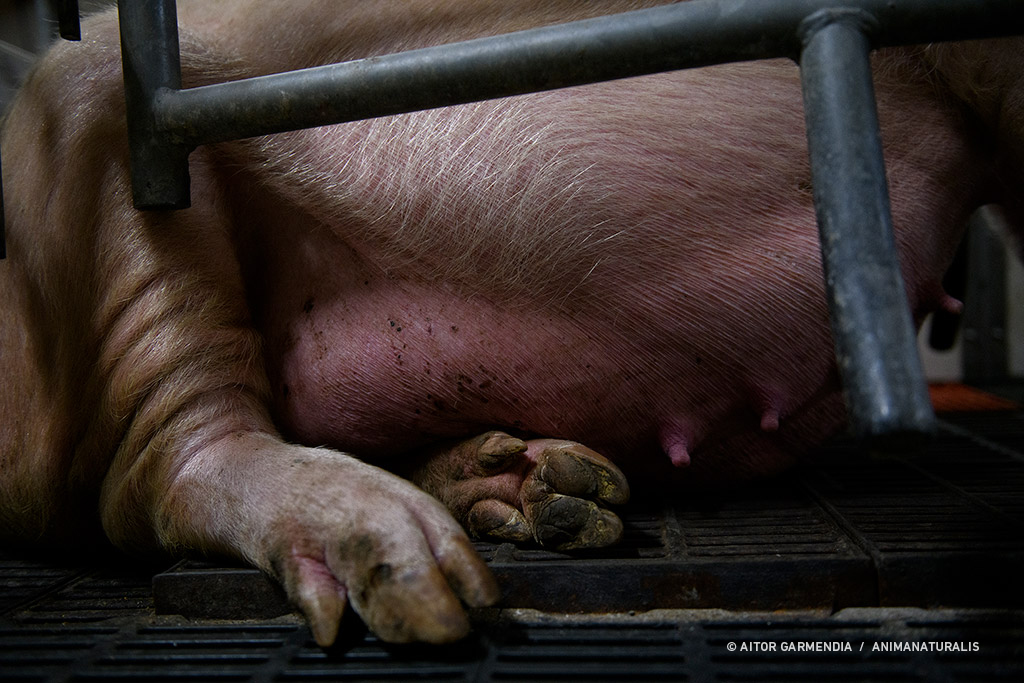Overcrowding in Industrial Farms
In animal industrial farms, large-scale production has become the norm. However, this relentless focus on maximizing production has led to overcrowded conditions that seriously jeopardize animal welfare. In Spain, this issue has become more urgent than ever, with a constant increase in meat and dairy production, reaching record numbers in recent years. But behind these production figures lies a reality that cries out for attention: the lack of consideration for animal welfare in industrial farms.

Animals Treated as Production Machines
In Spanish industrial farms, animals are often viewed as mere production units, machines that must churn out meat, eggs, or milk in large quantities and at breakneck speeds. This mentality has given rise to cruel practices and inhumane living conditions for animals, often crammed into tight spaces with inadequate access to natural light and fresh air.
Alarming Figures
The meat production figures in Spain have reached unprecedented levels. In 2021, the record from the previous year was surpassed, with production exceeding 8 million tons. These figures are staggering, but what is often overlooked are the conditions in which the animals live and die, enabling this massive production.
According to official data from the Ministry of Agriculture in 2018, over 52 million animals were taken to slaughterhouses that year in Spain. However, most of these animals come from farms where overcrowding and poor conditions are the norm. This is particularly evident in the case of laying hens, where 91% are still raised in cages or crowded into sheds with excessively high densities per square meter.
The Sad Reality of Laying Hens
Laying hens are one of the groups most affected by overcrowding in industrial farms. Confined in tiny cages, these birds barely have space to move or spread their wings. This lack of movement results in serious health problems, such as bone deformities and feather issues. Furthermore, overcrowded conditions increase stress and aggression among the birds, further exacerbating their suffering.
More Cows, Less Space
Milk production in Spain has also seen an increase in intensity, but at the expense of cow welfare. Over the past nine years, the average number of cows per farm has nearly doubled. An extreme example of this trend can be found in Soria, where there is a dairy farm with 20,000 cows, the largest in Europe. In such facilities, cows often spend their lives in cramped spaces, with limited access to pasture and the outdoors.
Overcrowding in animal industrial farms in Spain is a serious issue that threatens the welfare of millions of animals each year. These animals deserve a dignified life, free from unnecessary suffering. Mass production of meat and dairy should not come at the expense of the rights and welfare of animals. It is the responsibility of society and authorities to take action to ensure that animal welfare is respected in the agricultural industry and to promote more ethical and sustainable practices in food production. Awareness of this issue is the first step toward meaningful change in how we treat animals in our industrial farms.
